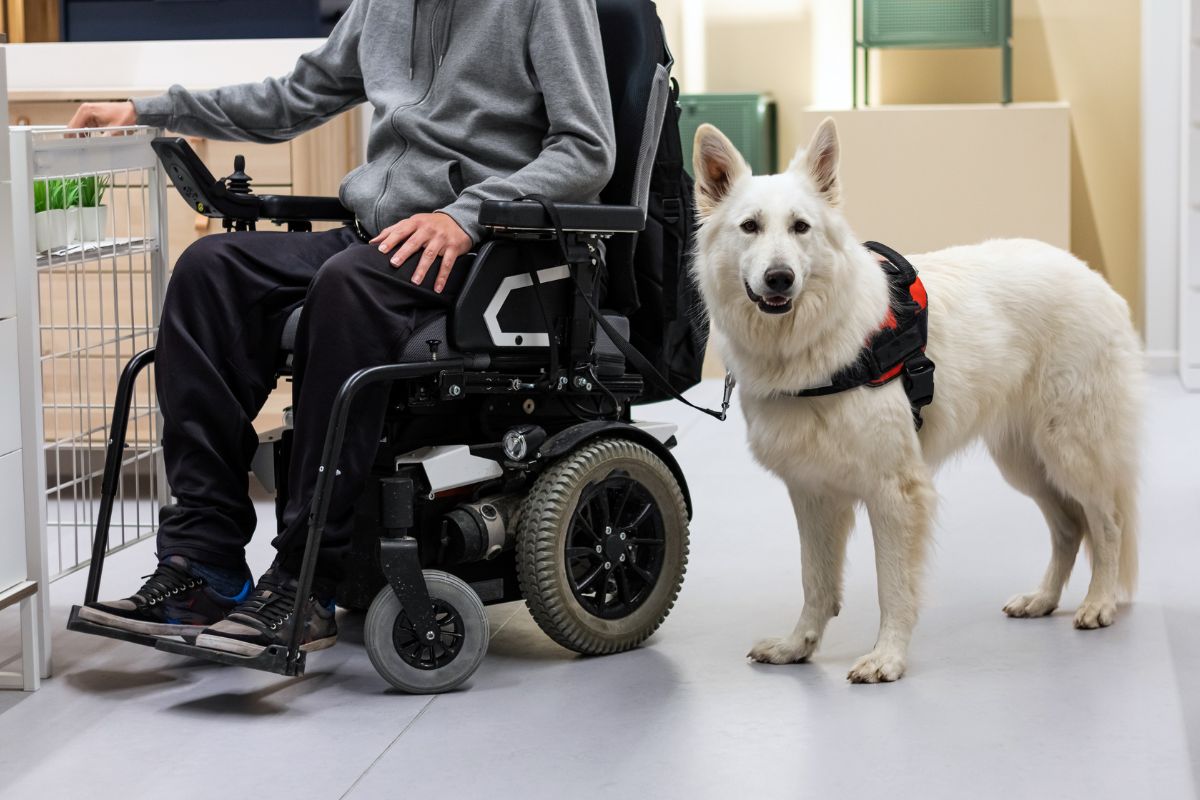Americans with Disabilities Act (ADA): Discover Your Rights

Robert Clendenin, MD

What Is The Americans With Disabilities Act (ADA)?
How Does The ADA Protect My Rights?
The ADA is divided into several key areas, each designed to protect your rights in specific aspects of life:
- Title I: Employment
- Ensures equal employment opportunities for individuals with disabilities.
- Employers must provide reasonable accommodations.
- Title II: Public Services
- Guarantees access to public services, including public transportation and government buildings.
- Protects against discrimination in state and local government activities.
- Title III: Public Accommodations
- Ensures accessibility in businesses and non-profit service providers.
- Mandates accessible facilities in public spaces, including restaurants, hotels, and theaters.
- Title IV: Telecommunications
- Telecommunications services are required to be accessible to individuals with hearing or speech disabilities.
- Provides for the establishment of relay services for communication.
- Title V: Miscellaneous Provisions
- Covers a range of additional protections, including prohibiting retaliation against individuals claiming their ADA rights.
What Is The Definition of a Disability Under The ADA?
The ADA’s broad definition means that many different conditions can be considered disabilities, so it’s important to understand your rights and how they apply to your specific situation. If you have a condition that significantly impacts your daily life, the ADA likely covers it, providing essential protections.
What Can I Do to Ensure My Workplace Is ADA-Compliant?
Knowing how to ensure ADA compliance in the workplace is crucial whether you are an employer or an employee. Here are some steps you can take:
- Conduct an Accessibility Audit: You should regularly assess your workplace for accessibility. This includes evaluating physical spaces and digital environments.
- Provide Reasonable Accommodations: This could be anything from modifying workstations to offering flexible work hours. The key is to ensure that these accommodations enable employees with disabilities to perform their jobs effectively.
- Educate My Team: You should make sure that all employees understand ADA requirements and the importance of creating an inclusive workplace.
What Should I Do If My Rights Are Violated?
If you feel your rights have been violated, don’t worry—there are steps I can take:
- Document the Incident: You should keep a detailed record of what happened, including dates, times, and communications.
- File a Complaint: You can file a complaint with the U.S. Department of Justice (DOJ) or the Equal Employment Opportunity Commission (EEOC) depending on the situation.
- Seek Legal Assistance: You might consider consulting an attorney who specializes in ADA cases to explore my options.
How Does The ADA Define Service Animals?
According to the ADA, a service animal is a dog individually trained to do work or perform tasks for a person with a disability. The tasks service animal performs must be directly related to the disability. For example, if you have a visual impairment, a service animal might guide you, or if you have diabetes, a service animal might alert you to low blood sugar levels.
It’s important to note that under the ADA, only dogs (and in some cases, miniature horses) qualify as service animals. Emotional support animals, therapy animals, and other pets are not considered service animals under the ADA, even if they provide comfort and emotional support.
What Are the Service Animal Training Requirements As Per ADA?
There is no official certification or training program mandated by the ADA, meaning you can train your service animal or seek professional training services. However, the training must be thorough enough to ensure your service animal behaves properly in public settings and performs its tasks reliably.
Where Are Service Animals Allowed As Per ADA?
However, there are a few exceptions to where service animals are allowed. For example, if you are entering a sterile environment, such as an operating room, your service animal may not be allowed due to health and safety concerns.
What Are ADA Guidelines On Service Animal Proof?
ADA doesn’t require you to carry special documentation or proof that your dog is a service animal. Businesses and public entities are generally not allowed to ask for proof or certification. Instead, they can only ask two questions:
- Is my dog a service animal required because of a disability?
- What work or task has my dog been trained to perform?
These questions help establish that your dog is a service animal without infringing on your privacy. However, service animals must still be well-behaved and under control at all times when in public.
When Can My Service Animal Be Denied Per the ADA?
Conclusion
Frequently Asked Questions (FAQs)
What Are My Rights Under The Americans With Disabilities Act in The Workplace?
How Do I File a Complaint Under The Americans With Disabilities Act?
What Types Of Businesses Are Required To Comply With The ADA?
How Can I Make My Website ADA-Compliant?
How Does The ADA Impact Public Transportation Accessibility?
What Are The Penalties For Non-Compliance With The ADA?
Are Emotional Support Animals covered Under The ADA?
Can Businesses Ignore ADA Requirements If Compliance Is Too Expensive?
Does The ADA Only Protect People With Visible Disabilities?
Post Author
Prince Sharma
Related Articles
What Are the Emotional Support Animal Laws in Kansas?
What Are the Emotional Support Animal Laws in Kansas?In Kansas, emotional support animals (ESAs) are protected under federal laws like the Fair Housing Act, which allows them in housing without pet fees, even in no-pet policies. However, ESAs are not...
What Are the Emotional Support Animal Laws in Nebraska?
What Are the Emotional Support Animal Laws in Nebraska?In Nebraska, emotional support animals (ESAs) are protected under federal laws like the Fair Housing Act, which allows them in housing without pet fees, even in no-pet policies. However, ESAs are...
What Are the Emotional Support Animal Laws in Wyoming?
What Are the Emotional Support Animal Laws in Wyoming?In Wyoming, emotional support animals (ESAs) are protected under federal laws like the Fair Housing Act, which allows them in housing without pet fees, even in no-pet policies. However, ESAs are...
Live and Fly Free with Your PSD!





